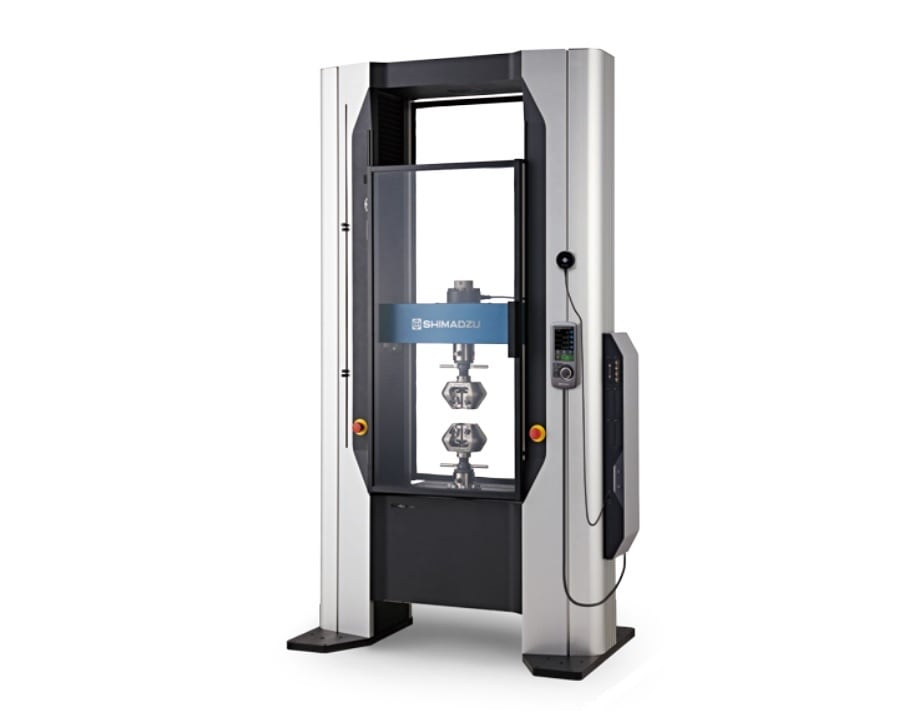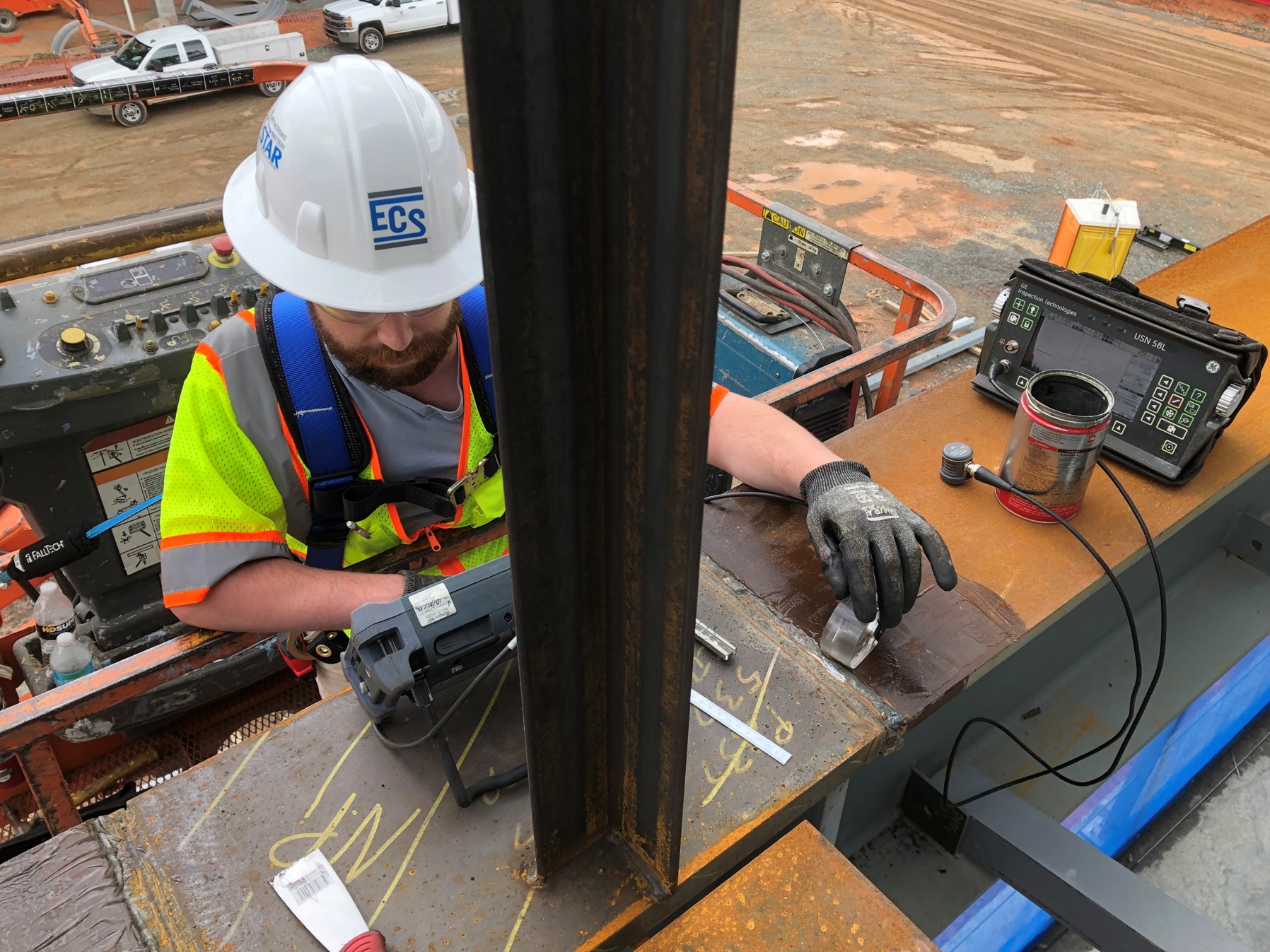Understanding Analysis: Your Materials Test Lab Authority
Wiki Article
Putting Materials to the Test: Discovering the Duty of Materials Examination Labs
Materials examination laboratories play a critical function in making sure the high quality and dependability of different products made use of in markets such as building, aerospace, and production. Via a combination of advanced techniques and customized tools, materials test labs are able to assess the homes of metals, polymers, compounds, and various other products under numerous conditions and stressors. This short article will discover the importance of materials testing, the types of products checked, screening strategies and equipment used, as well as the applications of materials test results.Significance of Products Screening
Consistently examining the high quality of materials is essential in making sure the honesty and safety of products in various industries. This is where materials testing plays an essential duty. Materials testing entails subjecting materials to various examinations and experiments to review their mechanical, physical, and chemical buildings. By conducting these producers, tests and suppliers can make certain that their items fulfill the required standards and specs.Among the essential reasons materials screening is very important is the guarantee of product top quality. Through extensive screening, makers can recognize any type of defects or weak points in the materials made use of for their products. This enables them to make needed improvements to enhance the general quality and performance of their items. Moreover, products testing assists in recognizing potential problems that may arise throughout the item's lifecycle, such as deterioration, deterioration, or architectural failings. By attending to these problems beforehand, producers can protect against pricey recalls, suits, and reputational damage.
By subjecting materials to numerous tests, producers can identify their stamina, resistance, and sturdiness to exterior variables such as warm, stress, or chemicals. Whether it is automotive elements, clinical gadgets, or building materials, products testing aids in recognizing any prospective safety and security threats and creating suitable actions to reduce them.
Kinds of Materials Checked
Numerous sorts of materials are examined in materials examination laboratories to examine their mechanical, physical, and chemical residential or commercial properties. These materials can encompass a large array important, including metals, polymers, porcelains, compounds, and even all-natural materials such as wood and concrete.Steels are frequently evaluated due to their extensive use in different markets. These tests analyze buildings such as tensile stamina, solidity, and ductility. Polymers, on the various other hand, are checked to identify their elasticity, thermal security, and resistance to chemicals. Ceramics are examined for their resistance, stamina, and brittleness to heats. Compounds, which contain 2 or even more different materials, are assessed to understand their general efficiency, consisting of aspects like strength, adaptability, and durability.
All-natural products like wood are tested to analyze their strength, dampness content, and resistance to decay (materials test lab). Concrete is another commonly evaluated product, with examinations concentrating on its compressive strength, durability, and resistance to ecological factors
Along with these materials, materials test laboratories also examine layers, paints, adhesives, and numerous other materials used in building and construction, production, and various other sectors. By subjecting these products to rigorous testing, engineers and scientists can collect beneficial data to inform product option, layout optimization, and top quality control processes.
Examining Methods and Devices
Evaluating strategies and equipment play an important duty in products examination laboratories for examining the mechanical, physical, and chemical residential or commercial properties of various materials. These techniques and equipment are necessary in ensuring the high quality, integrity, and security of materials used in review numerous sectors such as aerospace, vehicle, construction, and clinical.One frequently made use of testing technique in materials examination labs is mechanical screening, which includes subjecting materials to different pressures or loads to determine their strength, firmness, ductility, and other mechanical homes. This is commonly done making use of equipment such as universal screening machines, which can apply tensile, compressive, and bending forces to test specimens.
Physical testing techniques are additionally used to assess properties such as thickness, viscosity, thermal conductivity, and electrical conductivity. Equipment such as density meters, viscometers, thermal conductivity analyzers, and electric conductivity meters are utilized to perform these examinations precisely.
Chemical screening techniques are used to identify the chemical make-up and pureness of products. Methods such as spectroscopy, chromatography, and mass spectrometry are commonly utilized, in addition to customized devices created for these purposes.

Applications of Products Examination Outcomes
The outcomes of products testing supply valuable understandings right into the performance and suitability of various materials for specific applications in various industries - materials test lab. These test results play an important duty in determining the quality, sturdiness, and safety and security of materials used in producing processesOne of the crucial applications of materials examination results remains in the area of building and construction. Engineers and architects rely upon these results to pick suitable materials for developing structures, such as bridges, high-rises, and household buildings. By carrying out examinations on materials like timber, steel, and concrete, they can ensure that these products meet the required standards and can hold up against various environmental problems.
In the aerospace sector, products examination outcomes are crucial in figuring out the suitability of products for aircraft elements. By subjecting materials to rigorous screening, designers can analyze their mechanical residential or commercial properties, resistance to warmth and corrosion, and capacity to withstand high-stress problems. This details is essential in guaranteeing the safety and reliability of aircraft.

Future Fads in Materials Testing
In the world of materials screening, developments in products examining methodologies are shaping the trajectory of the area, ushering in a new period of development and accuracy. One future trend in products screening is the combination of synthetic intelligence (AI) and maker learning formulas right into testing processes. These approaches allow for the assessment of material buildings without causing damage or modification to the example, making them suitable for examining beneficial or irreplaceable products.Verdict
In conclusion, products screening plays an important role in different sectors by guaranteeing the quality, safety and security, and efficiency of products used in frameworks and products. The results gotten from materials screening are utilized to make informed choices in material production, option, and design procedures.Via a mix of advanced strategies and customized tools, materials examination laboratories are able to examine the residential properties of metals, polymers, composites, and other materials under various conditions and stress factors. By carrying out tests on materials like hardwood, steel, and concrete, they can guarantee that these materials satisfy the required requirements and can stand up to various ecological problems.
In the aerospace industry, materials examination outcomes are essential in establishing the viability of materials for airplane components. By examining products for their versatility, resistance, and stamina to influence, manufacturers can choose the most suitable products for different auto elements, such as body panels, engine parts, and safety features.In the world of products screening, developments in products examining methods are forming the trajectory of the area, ushering in a new period of development and precision.
Report this wiki page